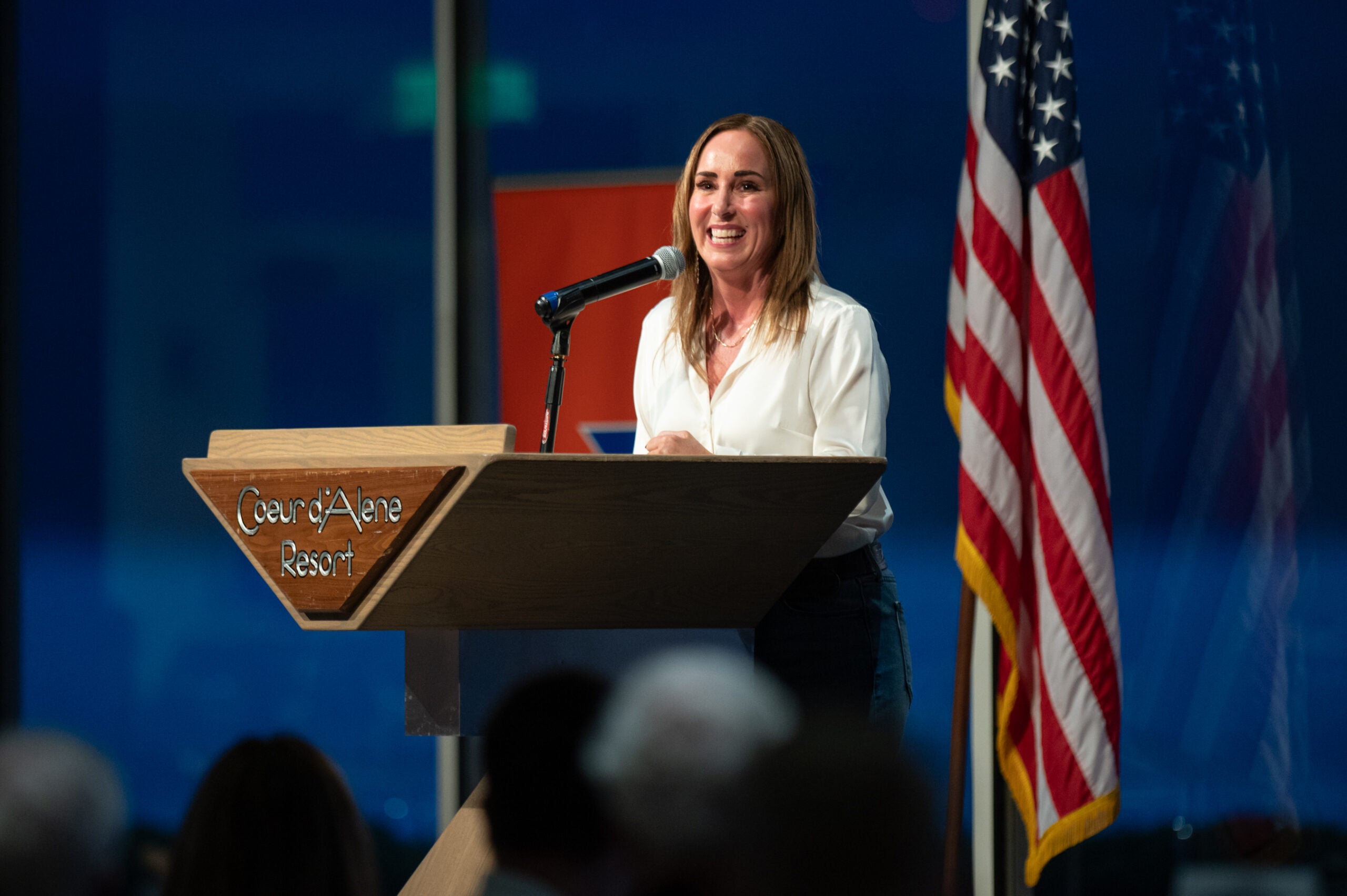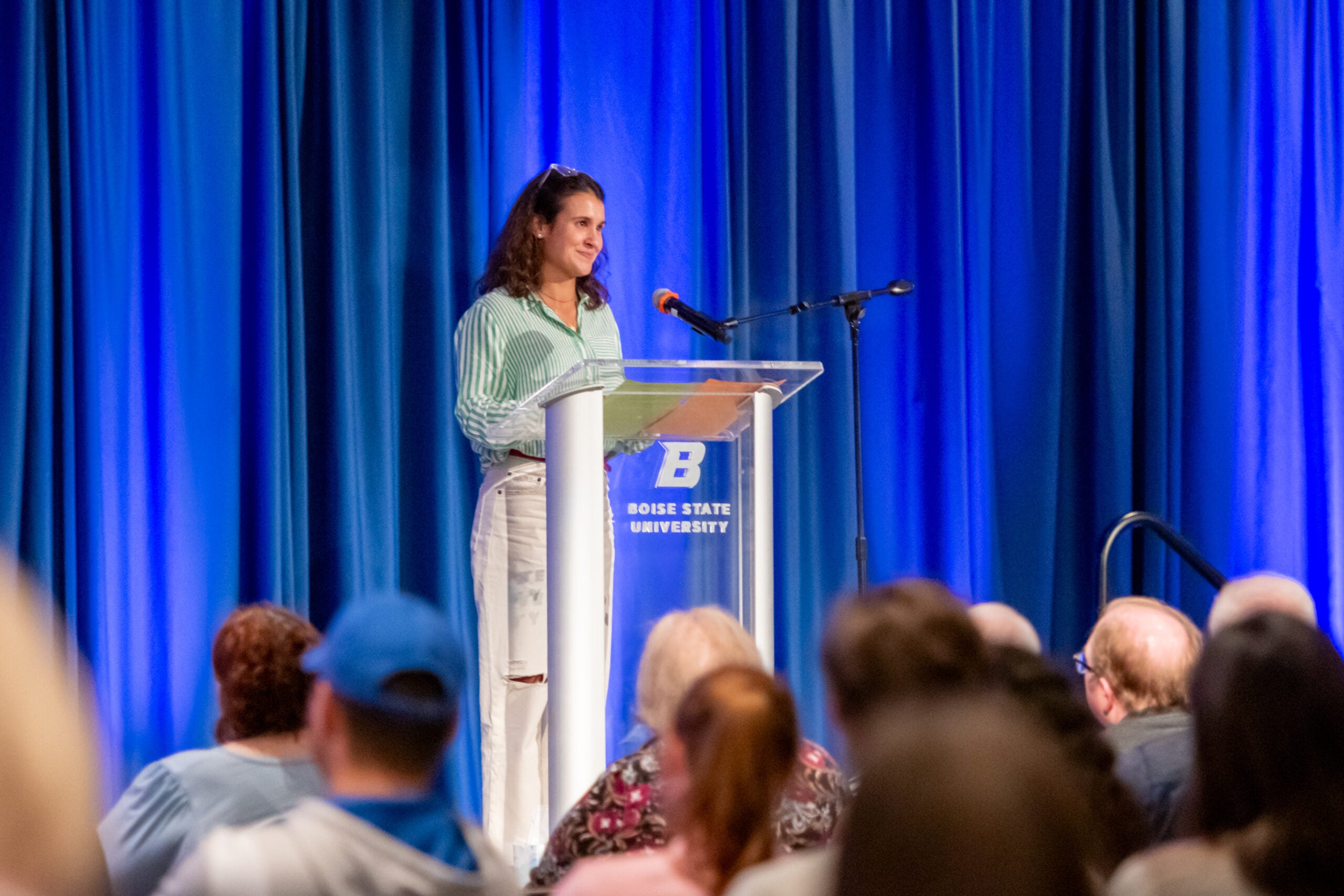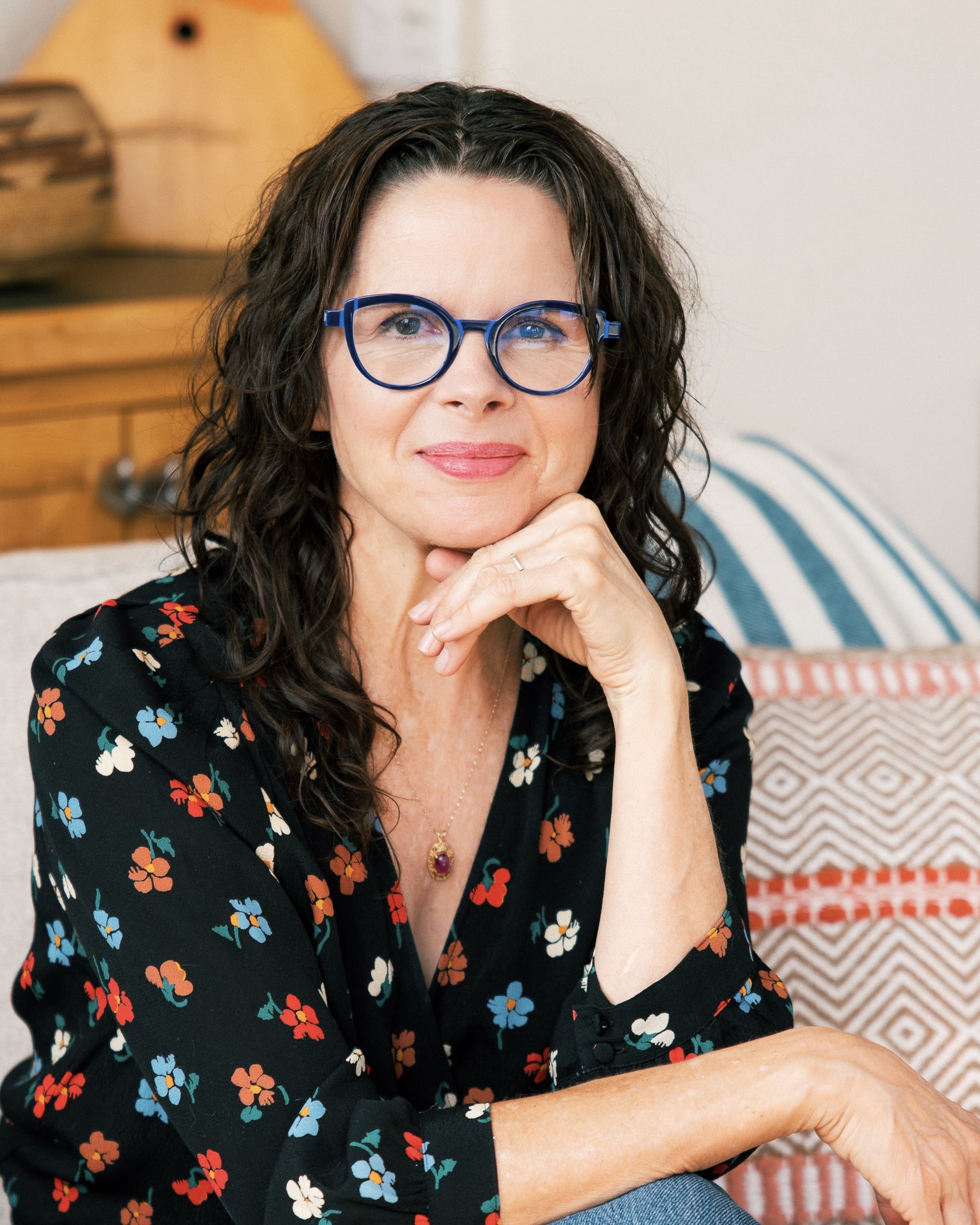
The Institute for Advancing American Values at Boise State, founded by President Marlene Tromp in 2021, encourages people to talk and listen to each other about the ideas that have shaped American life.
Its programs, Idaho Listens and student counterpart Boise State Listens, are lecture series unique for their structure. Speakers from diverse backgrounds share stories about their lives and beliefs before a silent audience. The audience doesn’t clap. It doesn’t cheer. Regardless of political or cultural persuasion, the audience listens with respect – some might even say reverence.
“We understand the country doesn’t fit together in a neat and easy way, just as our Founding Fathers did, but we do expect there to be discussion, discourse, and that those conversations happen civilly, with honesty, integrity and humility,” said Isaac Castellano, associate director of the institute.
Listening events have taken place across the state, with more in the works.
A few participants shared what the program has meant to them.
A pastor from North Idaho
Raydeane Owens, co-lead pastor with her husband Jonathan Owens of Heart of the City Church in Coeur d’Alene, spoke at the Idaho Listens event in Coeur d’Alene in 2023.
“We struggle with fear of the unknown, but Idaho Listens provides a safe environment,” Owens said. “It’s a place to spend time with people who are different from you. Because of COVID, because of ‘cancel culture,’ that’s been hard. This is a way to start talking to your neighbor again.”
At the Idaho Listens event, Owens spoke of seeing hypocrisy in church when she was young, then finding her faith and fighting for it.
“Being a Christian and knowing God and doing a service, and being diagnosed with cancer three times. I feel like the adversity I’ve gone through has been where my opportunities have come. That path of resistance keeps perspective fresh,” she said.
Beyond the speaking event, Idaho Listens has remained a part of Owens’ life.
“I’ve learned so much. I feel like I’ve been in a college through Idaho Listens,” she said. She wrote about the program for a local lifestyle magazine. Owens became friends with a fellow speaker.
“She’s the opposite of me, leaning liberal, where I lean conservative. We sat and talked for two hours. She came out of the gate, asking the questions a liberal would want to ask a conservative.”
At one point in her life, Owens said she might have felt defensive. “Instead I was able to say, ‘I see why you think that way.’ It’s exciting for me. I could share my perspective from church and I could see things clicking in her head.”
Being uncomfortable is sometimes good, Owens said. “And I find that the older I get, the more OK I am with being uncomfortable.”
Idaho Listens, she added, “made something catch fire in my heart and I’m not letting this go.”
A student-athlete

Ana Conde Vendrell, recruited from Paris, France, to play tennis for the university, was a recent speaker at a Boise State Listens event on campus. Stories there ranged from the gratification that comes from serving one’s community to the challenges of mental health and cognitive issues.
Conde Vendrell, a senior majoring in political and social science, spoke about her family, about courage and the fortune of encountering acts of great kindness. She told the tale of her Spanish grandparents who left their country following the Spanish Civil War and settled in France. As refugees, they had few resources. They didn’t speak French.
“My grandmother’s first job was as a waitress. The first day she arrived, the boss told my grandmother to stay with her. She gave my grandmother miniature language lessons,” Conde Vendrell said. “Thirty years later, when my parents got married, they invited that boss to their wedding. And she came with her whole family.”
Conde Vendrell tied this story to her experiences on the tennis team. She was far from home, playing in a tournament in Nevada when her beloved grandfather died in Europe. Her coach, teammates, the athletics staff gathered around her, taking care of her, “like I was their own daughter,” she said.
Sharing her story publicly through Boise State Listens helped her crystallize her ideas and gave her confidence. “It’s brave to leave what you know, brave to leave what you have, just with hope,” as her grandparents did decades ago, as she did, coming to college in a foreign country. But like her grandparents, she was lucky to find herself among generous people, those who also showed courage in their willingness to help a vulnerable person in need.
The coach

Nancy Buffington, a speaking coach, writer and former English professor, has worked with more than 75 speakers for Idaho Listens and Boise State Listens, preparing them to share their stories on the quiet stage.
“The audience has minutes with the speakers. I have longer to hear about their struggles and what has shaped them. It’s a huge privilege,” Buffington said. She spends hours taking notes, listening, watching for patterns, themes and “dots that might connect.”
Buffington has seen the evolution of speakers who doubt they have anything interesting to say, only to later move audiences to tears. She has heard from those audience members who tell her how hard it is to keep from clapping or even standing for speakers in recognition of what they’ve shared.
Strong ties grow through the program, she said, even among those with wildly dissimilar beliefs and life experiences. She recalled a man who said of his fellow speakers, “I don’t agree with all of them, but I love them all.”
Find more information and see recordings on the Idaho Listens website.
Coming up: Institute for Advancing American Values: Distinguished Lecture Series
The institute presents “The Meltdown of the University and Ideas for Rebuilding it,” a discussion with Jonathan Haidt, 7 p.m., March 13 at the Morrison Center. Free and open to the public.
Haidt is a social psychologist at New York University’s Stern School of Business. His research examines the intuitive foundations of morality, and how morality varies across cultural and political divisions. Since 2018 he has studied the role of social media in the decline of mental health in young people and the rise of political dysfunction.